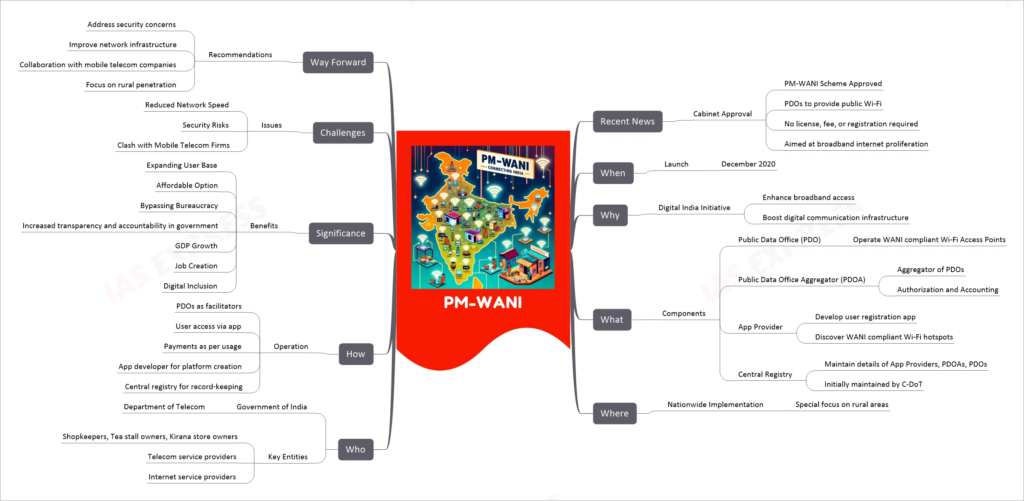PM-WANI

PM-WANI (Prime Minister’s Wi-Fi Access Network Interface) is an initiative launched by the Government of India to enhance the penetration of public Wi-Fi hotspots throughout the nation, particularly in rural areas. The scheme aims to democratize internet access by allowing entities like shopkeepers and small business owners to set up public Wi-Fi hotspots without needing any license, registration, or fee. It is part of the broader Digital India initiative, striving to improve the country’s digital communication infrastructure and increase internet users. Key components of PM-WANI include Public Data Offices (PDOs), Public Data Office Aggregators (PDOAs), App Providers, and a Central Registry. The scheme is anticipated to expand internet user base, boost GDP, create jobs, and enhance transparency in government functioning, although it also faces challenges like potential network speed reduction and security risks.
If you like this post, please share your feedback in the comments section below so that we will upload more posts like this.

